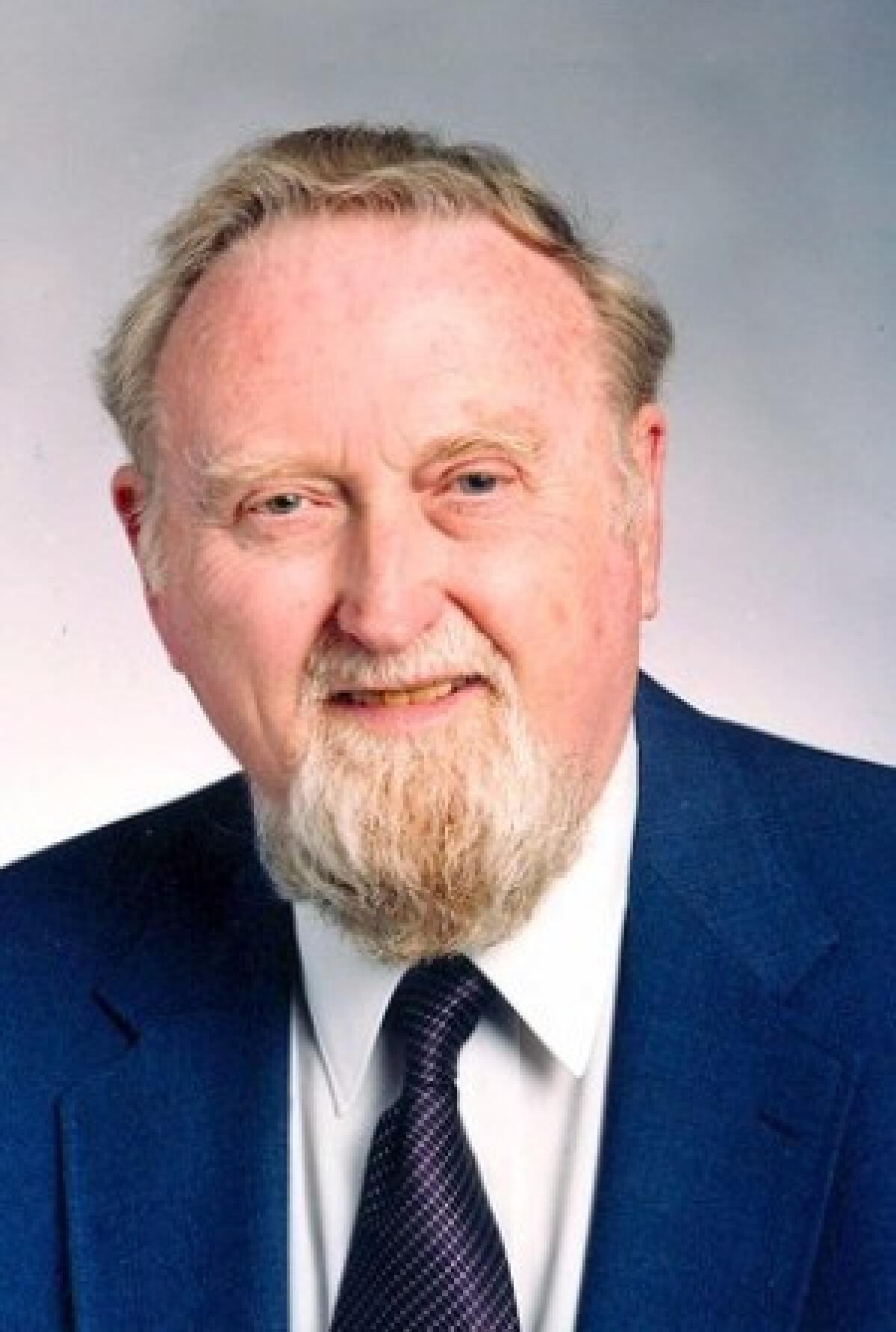Clive W.J. Granger dies at 74; UC San Diego economist won Nobel Prize

Clive W.J. Granger, co-winner of the 2003 Nobel Prize for economics for his iconoclastic view about how his profession used figures to predict the future, has died. He was 74.
Granger, a professor emeritus in the economics department at UC San Diego, died Wednesday at Scripps Memorial Hospital in La Jolla after a short illness.
He and UC San Diego colleague Robert Engle were recognized by the Nobel Committee for their work that showed many of the standard formulas used by economists were outmoded.
Simply put, the two showed that relationships such as that between national income and money supply change over time and cannot be used as a fixed formula to predict how the economy will react to a change in policy or other factors. Granger developed a model for testing whether one variable caused movements in another.
“Granger gave us a rigorous way to distinguish between stupid and non-stupid relationships,” Harvard economist James H. Stock told The Times after Granger received the Nobel.
Though he was considered a Keynesian, a branch of economics that holds that deficit spending by government can be beneficial, he was willing to challenge orthodoxy as he looked for relationships between various economic factors.
“Granger is essentially a pragmatist,” the Irish Times wrote last year. “He is not hide-bound by theory or by ideologies.”
Clive William John Granger was born in Swansea, Wales, on Sept. 4, 1934. He received a bachelor’s degree and doctorate at the University of Nottingham and was a lecturer in mathematics and then professor of statistics at his alma mater until he accepted a faculty post at UC San Diego in 1976. He retired in June 2003 and took emeritus status.
At the La Jolla campus, Granger helped build the economics department, which enjoys a national reputation for research and teaching. He said he liked UC San Diego because it avoided setting up academic committees and instead allowed faculty members to teach and do research.
Although he spent more than two decades at UC San Diego, he remained close to the University of Nottingham, where a building is named in his honor and where he gave his Nobel Prize lecture.
“Clive was a towering intellect, irrepressibly curious and a great simplifier and communicator,” said David Greenway, vice chancellor at the University of Nottingham.
He published more than 200 papers and was a featured speaker at conferences worldwide.
The titles of his seminal papers reflect the complexity of his field: “Some Properties of Time-Series Data and Their Use in Econometric Model Specification” in 1981 and “Co-Integration and Error-Correction: Representation, Estimation and Testing” in 1987.
His formula allowed for more accurate forecasting of economic trends. He also built a predictive model for the deforestation of the Amazon rain forest.
Despite the academic acclaim, Granger was not above poking fun at himself or his profession. When he retired from full-time teaching, a picture on the UC San Diego website showed him sitting on a Yamaha motorcycle with the caption, “Rebel Without a Causal Model.”
Julian Betts, chairman of the department, said Granger was “particularly known for the way he made time for students and visitors, for his witty insights and his gentle sense of humor.”
He liked to body board in the surf near the campus.
He was an avid hiker and tennis player, and became a fan of the San Diego Chargers although he retained a fondness for rugby.
Granger was a visiting scholar at Canterbury University in New Zealand when he got a middle-of-the-night phone call from the Nobel Committee. At first he thought the call was a hoax.
When he realized the call was for real, Granger and his wife decided to celebrate by going to a rugby match between Canterbury and Auckland.
He was awarded several honorary doctorates, was lauded by the British Academy and served as president of the Western Economic Assn.
In 2004 he was made a knight bachelor by Queen Elizabeth II, giving him the title of Sir Clive.
He is survived by his wife, Patricia, a son, Mark, and a daughter, Claire.
More to Read
Start your day right
Sign up for Essential California for the L.A. Times biggest news, features and recommendations in your inbox six days a week.
You may occasionally receive promotional content from the Los Angeles Times.






